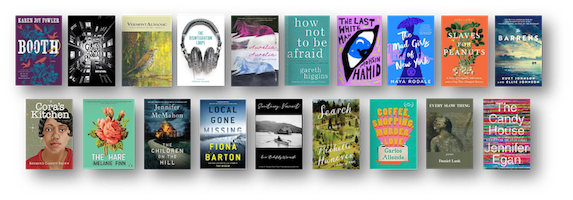
A writing podcast for writers and curious readers, featuring interviews with authors, poets, agents and editors. Twice chosen as one of Writer’s Digest Magazine’s 101 Best Website for Writers. Vermont-grown.
A writing podcast for writers and curious readers, featuring interviews with authors, poets, agents and editors. Twice chosen as one of Writer’s Digest Magazine’s 101 Best Website for Writers. Vermont-grown.
Episodes
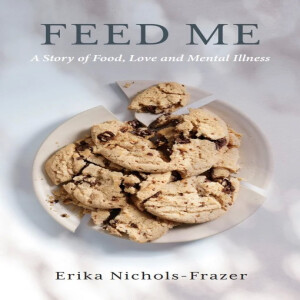
Friday Jan 06, 2023
Erika Nichols-Frazer - 1/2/23
Friday Jan 06, 2023
Friday Jan 06, 2023
Vermont Author Erika Nichols-Frazer, speaking about her new memoir, Feed Me: A Story of Food, Love and Mental Illness (Casper Press).
This week's Write the Book Prompt was generously offered by my guest, Erika Nichols-Frazer. Feed Me is all about memories and food. Think of a food that holds some emotional significance: a pie you used to bake with your grandmother, something that you eat on special occasions, maybe something you've discovered in your travels. Describe that food in all its sensory details—the tastes, smells, textures—as well as you can, and connect that with the the emotions you feel when you eat that food as well as the circumstances: what's around you, where you are, who's there. See where that takes you.
Good luck with your work in the coming week, and tune in next week for another prompt or suggestion.
Music Credit: Aaron Shapiro
762
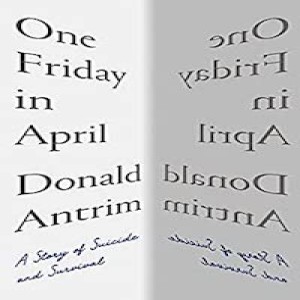
Saturday Oct 16, 2021
Donald Antrim - 10/11/21
Saturday Oct 16, 2021
Saturday Oct 16, 2021
Award-winning author Donald Antrim, whose new memoir is One Friday in April: A Story of Suicide and Survival (Norton).
In presenting his viewpoint that suicide is a disease, Donald Antrim experiments early in the book with a presentation of labels and names for mental illness. As you heard in the interview, this list begins, “Depression, hysteria, melancholia, nervousness, neurosis…” and goes on for nearly two pages. This week’s Write the Book Prompt is to use a list of words in an interesting way to make a point. Perhaps you are writing about the foliage season. Might it be interesting to present a running list of trees and bushes that offer brilliant color in the fall: maple, oak, elm, hackberry, white birch, larch, tamarack, hazelnut. What could you do to make such a list both interesting, as poetic sound, and evocative? How might you then transition back into your text to continue making your point?
Good luck with your work in the coming week, and tune in next week for another prompt or suggestion.
Music Credit: Aaron Shapiro
700
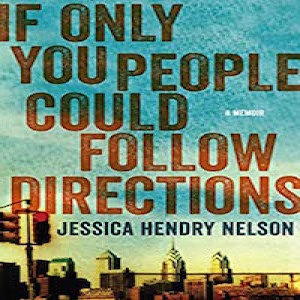
Monday Sep 13, 2021
Jessica Hendry Nelson - Archive Interview (9/6/21)
Monday Sep 13, 2021
Monday Sep 13, 2021
An interview from the archives with the author Jessica Hendry Nelson, who has a new book out - co-authored with fellow former Write the Book Guest Sean Prentiss: Advanced Creative Nonfiction: A Writer's Guide and Anthology, just out from Bloomsbury. During this interview, we talked about her memoir, If Only You People Could Follow Directions (Counterpoint).
This week’s Write the Book Prompt is inspired by the title of my guest’s memoir, If Only You People Could Follow Directions. Write a list of simple directions concerning how to do something - how to change a tire, how to make pasta, how to tape a room before painting it - and then expand on that list, making it into an essay that has deeper meaning.
Good luck with your work in the coming week, and tune in next week for another prompt or suggestion.
Music Credit: Aaron Shapiro
694
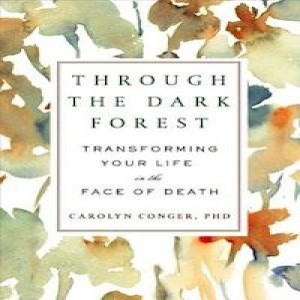
Friday Aug 27, 2021
Carolyn Conger, PhD - Archive Interview (8/23/21)
Friday Aug 27, 2021
Friday Aug 27, 2021
An interview from the archives with consultant and teacher Carolyn Conger, PhD, about her book Through the Dark Forest: Transforming Your Life in the Face of Death (Plume).
This week’s Write the Book Prompt was inspired by the book, Through the Dark Forest: Transforming Your Life in the Face of Death. No matter where you are in life - age-wise, health-wise, or otherwise - this week consider what you’ve left unfinished so far in your life, and what you would like to do about it. Maybe also keep in mind how you have navigated the pandemic, and whether the past year and a half have made you feel more vulnerable. Write about all the things that come up as you invite these thoughts and feelings.
Good luck with your work in the coming week, and tune in next week for another prompt or suggestion.
Music Credit: Aaron Shapiro
692

Wednesday May 19, 2021
Erika Nichols-Frazer with A.E. Hines (5/17/21)
Wednesday May 19, 2021
Wednesday May 19, 2021
Vermont poet and author Erika Nichols-Frazer, who has edited a new collection on themes of mental health, A Tether to This World: Stories and Poems About Recovery (Main Street Rag). We are joined later in the hour by the poet A. E. Hines, a contributor to the collection.
This week we have two Write the Book Prompts, thanks to the generosity of my guests. The first was offered by Erika Nichols-Frazer, who credits it to the poet Chelsie Diane. Write a letter to yourself that starts with the phrase “I forgive you.”
And Earl, who publishes as A.E. Hines, shares an exercise on practicing self exposure. Pick a moment from your past or a personal circumstance that stands out in your mind as embarrassing: one that makes you at least slightly uneasy when sharing it. Now write a short poem about that experience using either second or third person — as if you’re telling the story about someone else. It doesn’t have to be a big thing; it could be something you did, a mistake you made, or something that happened to you due to no fault of your own. The only requirement is that writing about it puts a twinge of angst in your belly. When you’re done, change the POV back to first person, and see what happens. Did you learn anything new about that situation?
Good luck with your work in the coming week, and tune in next week for another prompt or suggestion.
Music Credit: Aaron Shapiro
678

Monday Jul 13, 2015
Mark Andrew Ferguson - Interview #356 (7/13/15)
Monday Jul 13, 2015
Monday Jul 13, 2015
Gary Lee Miller interviews Mark Andrew Fersuson about his debut novel, The Lost Boys Symphony, published by Little Brown and Company in March 2015.
Good luck with this exercise and please listen next week for another.
Music credits: "I Could Write a Book," by the Boston-based band, Possum.

Wednesday Nov 12, 2014
Robert Boswell - Interview #320 (11/10/14)
Wednesday Nov 12, 2014
Wednesday Nov 12, 2014
Robert Boswell, award-winning author of seven novels, including Tumbledown, just released in paperback from Graywolf Press.

Monday May 14, 2012
Martin Magoun - Interview # 192 (5/14/12)
Monday May 14, 2012
Monday May 14, 2012
Vermont writer Martin Magoun, author of the poetry collection Shattered and a memoir in essays, Russian Roulette: Depression, Suicide, Medication (DRUGS), published by Wharf Rat Books. This week's Write The Book Prompt was suggested by my guest Martin Magoun. "Describe the girl with the far away eyes." Good luck with this prompt, and please tune in next week for another! Music credits: 1) "Dreaming 1″ - John Fink; 2) "Filter" - Dorset Greens (a Vermont band featuring several former South Burlington High School students).

Monday Nov 15, 2010
Write The Book Interview #119 (11/15/10) Joseph Mazur
Monday Nov 15, 2010
Monday Nov 15, 2010
Interview with Vermont Mathematician, Professor and Author Joseph Mazur. This week's Write the Book Prompt was suggested by my guest, Joseph Mazur. I'm including it in his words, as sent to me in an email:
Good luck with this prompt and please listen next week for another.You know that nonfiction writing requires the writer to bring readers to places they haven't ever been and to tell them things they have not known. In one single sentence, that is the task of the nonfiction writer. But to keep readers reading, a book must be alive with human experience. That's the job of anecdotal entrances and anecdotal relief.
Anecdotes are there to first amuse, and therefore hook the reader, and then to give clues to what the book is about.
If you are writing nonfiction, try weaving in as much anecdotal material as possible. Take a look at some of Stephen Jay Gould's books for fine examples. Gould was the king of anecdotal entrances.
There are a few principles to favor when using a leading anecdote-Bring in something that the reader can identify with, a character, a place, an object, or a brief amusement. Watch out for making it too specific-specificity has an uncanny way of creeping into the lead to defeat the hook.
I introduce each of my own books with lead anecdotes-
I came to understand mathematics by way of a Russian novel. (The first sentence in a book about truth and logic in mathematics.)
My father was the first person to tell me about paradoxes of time. (The first sentence in a book about time and motion.)
When I was a child, my uncles would gather every Saturday at my grandparents' house to sit at a long dining room table telling jokes while accounting their week' s gambling wins and losses. (The first sentence in a book about the history and psychology of gambling.)
My own high school days were the near misfortune of my teenage years. (The first sentence in a book about learning math in an inner-city high school.)
What about anecdotal relief? In most cases, relief suggests a reprieve from something burdensome. And burdensome reading is never a welcome task. However, unless it is memoir or biography, nonfiction often involves the burden of strings of complicated information that tends to swell into what sometimes seems to be disconnected from thoughts of the real world. Even the best nonfiction writers need to think about anecdotal relief just as the most indefatigable readers need respite.

Tuesday Nov 09, 2010
Write The Book Interview #118 (11/8/10) Jon Turner/Warrior Writers
Tuesday Nov 09, 2010
Tuesday Nov 09, 2010
Jon Turner, Vermont Veteran, Poet, Paper Maker and Warrior Writers Member. This week, instead of a Write the Book Prompt, I'm going to refer you to the Warrior Writers' blogspot. There, alongside regular blog entries, you'll find weekly writing prompts, poetry forms, and occasional shared work. Please listen next week when the Prompt will return. Music credits: 1) “Dreaming 1″ - John Fink; 2) “Filter” - Dorset Greens (a Vermont band featuring several South Burlington High School students)

Tuesday Aug 31, 2010
Write The Book #109 (8/30/10) Jon Clinch
Tuesday Aug 31, 2010
Tuesday Aug 31, 2010
Vermont author Jon Clinch, author of the new novel, Kings Of The Earth. This week’s Write The Book Prompt is inspired by the interview you heard today with Jon Clinch. As we discussed, his novel, Kings Of The Earth, proceeds in a somewhat non-linear fashion with various characters describing events as they experience them. So consider your own work, think about how you might structure it differently. If the work is chronological, could you present it backwards? Or in a circular pattern? Could you present it by seasons, or all in a single day? Play around with ideas to see if an alternate structure appeals to you. Good luck with this exercise and please listen next week for another. Music credits: 1) “Dreaming 1″ - John Fink; 2) “Filter” - Dorset Greens (a Vermont band featuring several South Burlington High School students.

Monday May 24, 2010
Write The Book #97 (5/24/10) Ginnah Howard
Monday May 24, 2010
Monday May 24, 2010
Ginnah Howard, author of Night Navigation, joins Shelagh Shapiro on Write The Book. This week's Write The Book prompt was inspired by the work of my guest, Ginnah Howard, who mentioned a few times during our talk how important rhythm is to her in her own work and in the books she admires. In order to get a better sense of the rhythm of her prose, she often reads her work out loud. Your prompt this week, then, is to read aloud. Really listen to what you've written. You may find it differs from what you thought it would sound like. Listen for simple mistakes, for repeated words that you didn't intend to place so close together. As you read, pause in appropriate places for the punctuation you've used. Pay attention to the length of your sentences. Does their length reflect the intended mood of the fictional moment? Listen for the following elements, and decide if they are serving your work, or distracting from it: rhyme, fragments, alliteration, and repetitive sentence structure. In this last case, watch in particular for the repeated use of a subject, verb, object structure that may lull readers or distract them, making them lose their way. For example, which sounds better? Mary had a little lamb. Mary's lamb had white fleece. Mary's lamb followed her everywhere. Mary's lamb really got on her nerves after a while. He wanted to follow her to school. She had to stop him. Or Mary had a lamb. Fleecy and white, it was a sweet little animal, and very devoted. While Mary loved how the lamb followed her from room to room, she had to keep him from actually coming to school with her. Finally, you might find it helpful to have someone else read your work aloud to you. If this is too embarrassing, you might look to see if your word processing program has a "speak text" feature. Speak text allows you to highlight sections of work and have the computer read them back. Despite the somewhat robotic voices that some computers have, you might hear something you'd missed, just by virtue of being read to. In fact, using sound editing software, you can actually record your entire book and put it on your mp3 player, which is pretty cool. You can email me (writethebook@gmail.com) if you want to know how to do this. Good luck with this exercise and please listen next week for another.
